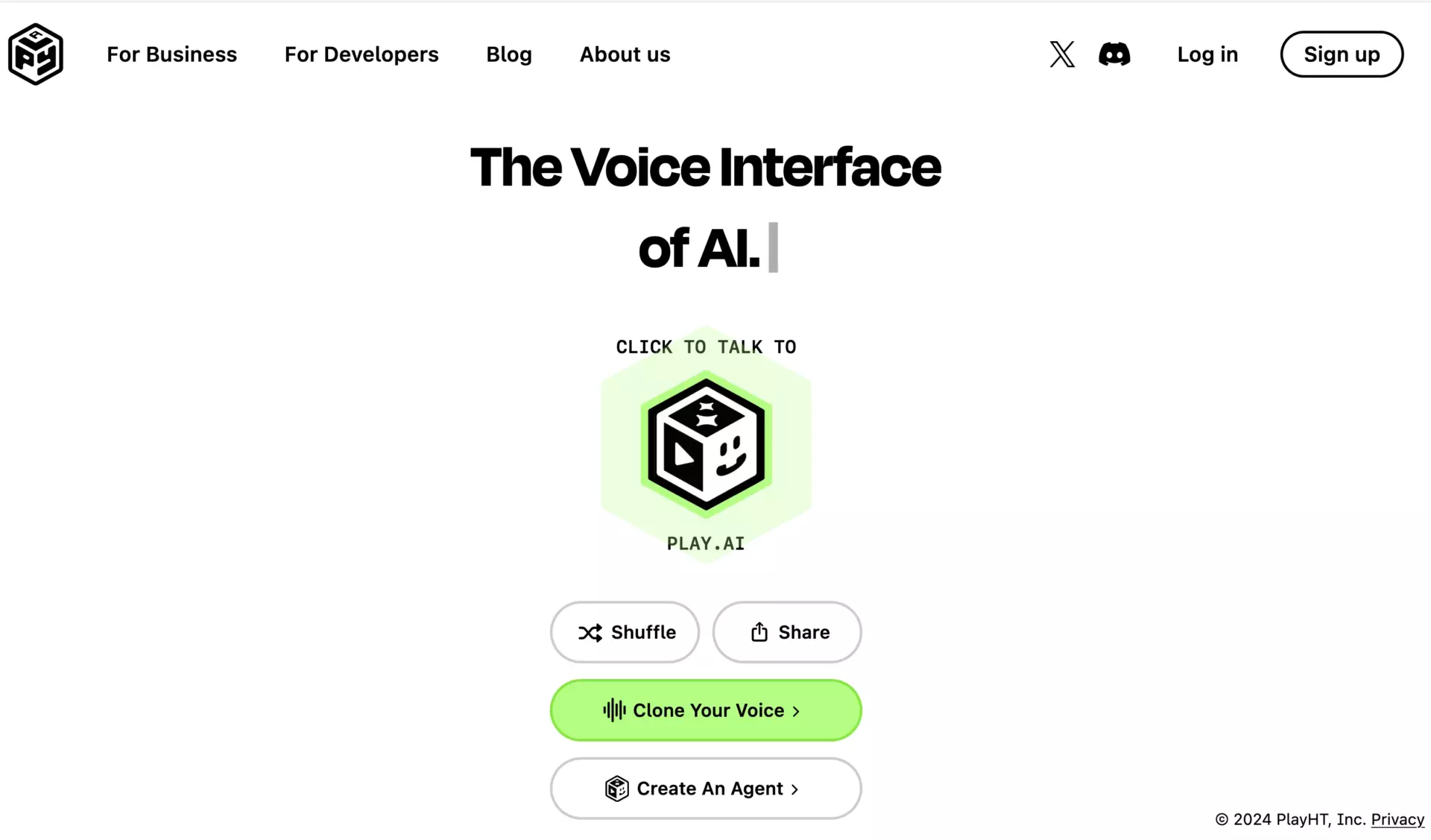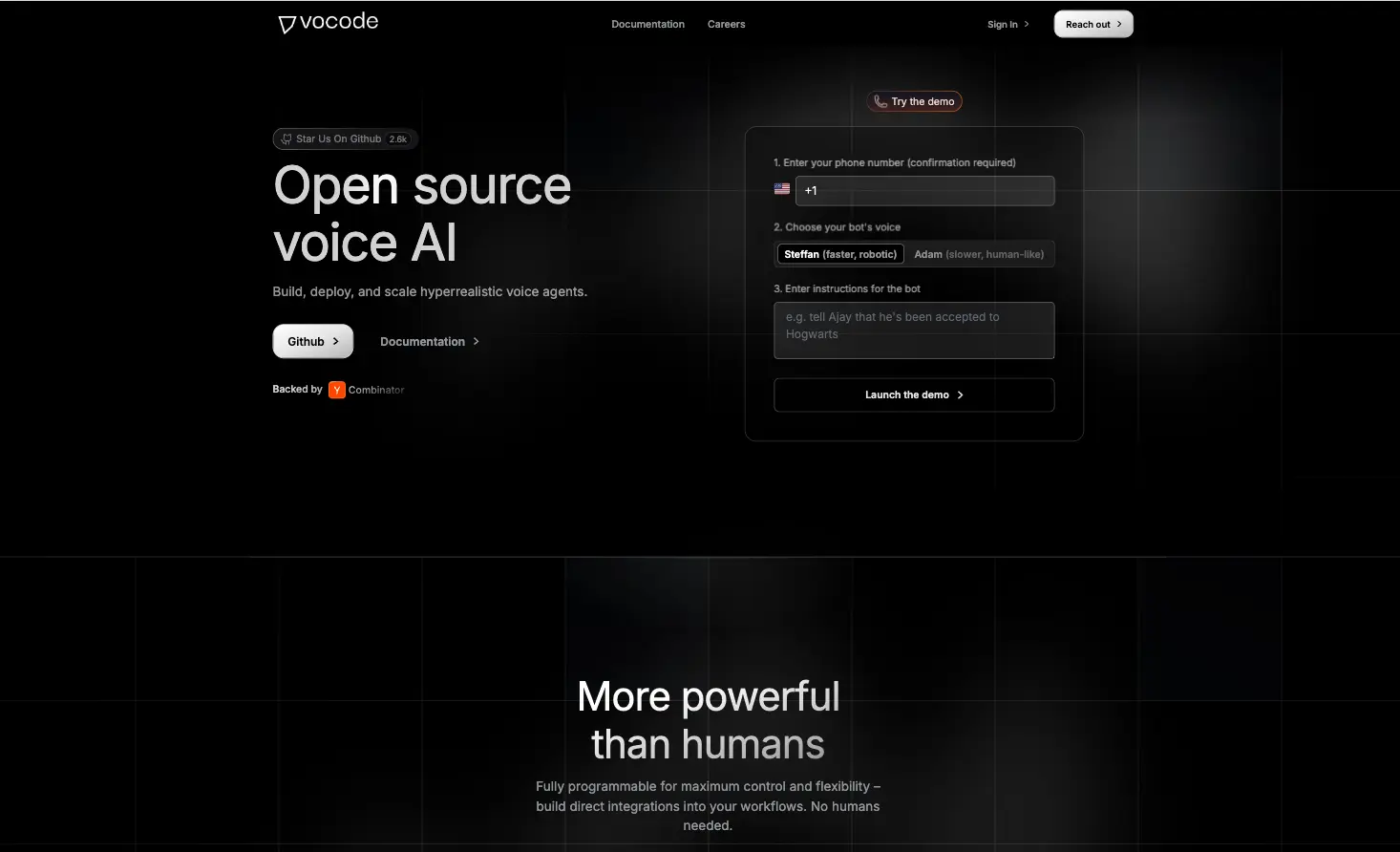Replicant markets itself as a conversational AI leader for automating voice interactions, but its limitations—such as lack of flexibility, inconsistent call quality, and unpredictable costs—leave many businesses searching for better solutions.
In this guide, we explore the top 7 Replicant alternatives for 2025, highlighting features, pricing, and user reviews to help you find a platform that truly enhances your customer interactions.
Reasons Why Replicant Should Stay in Your Past
1. Limited Customization and Scalability
Replicant’s rigidity makes it challenging to create tailored solutions for unique business needs. Its workflow templates are basic, and advanced API or CRM integrations often require extra development resources.
2. Inconsistent Call Quality and Latency Issues
Replicant often suffers from latency, causing delayed responses during calls. These unnatural pauses frustrate customers and compromise the overall user experience.
3. High and Unpredictable Costs
Replicant’s pricing model isn’t transparent. Businesses frequently report hidden fees for features like real-time transcription or advanced API use, making it difficult to budget effectively.
4. Limited Support
Users have noted a lack of robust documentation and slow support responses. This makes troubleshooting and resolving issues unnecessarily time-consuming.
What to Look for in Replicant Alternatives
When exploring alternatives to Replicant, it’s essential to focus on platforms that excel in critical areas like customization, call quality, and ease of integration. A strong alternative not only addresses Replicant’s limitations but also offers features designed to enhance customer interactions and streamline business operations.
1. Customizability
The ability to adapt a platform to your unique business workflows is essential for creating effective voice agents. Look for solutions with drag-and-drop builders and pre-built templates that make designing and deploying workflows intuitive and efficient.
Customizability ensures your AI can handle everything from automating simple customer queries to managing complex workflows like appointment scheduling or CRM updates. A platform that evolves with your needs is key to long-term scalability and success.
2. Call Quality
Nothing undermines customer trust faster than poor call quality. Prioritize alternatives that deliver crystal-clear audio and low latency to ensure conversations feel natural and seamless.
Clear communication fosters engagement, while minimal latency ensures responses occur without awkward delays. Advanced features like noise cancellation or voice modulation can further enhance the experience, making the AI interactions feel more professional and human-like.
3. Transparent Pricing
Budgeting effectively requires knowing exactly what you’re paying for. Avoid platforms with hidden fees or complex pricing models. Instead, opt for solutions that offer clear and predictable pricing structures.
Transparent pricing models make it easier to scale your operations without unexpected costs. Free trials or demo versions can also help you evaluate a platform’s functionality and determine whether it fits your budget and requirements.
4. Integration Capabilities
An AI platform must integrate seamlessly with your existing tools to maximize efficiency. Look for solutions that connect with CRM systems, scheduling apps, and analytics tools to centralize your workflows.
Strong integration capabilities reduce manual tasks and ensure smooth data flow between systems. This simplifies processes like customer data management, appointment booking, and post-call follow-ups, saving time and improving accuracy.
5. Reliable Support
Even the best platforms need strong support to address issues quickly. Choose providers that offer 24/7 support, detailed documentation, and onboarding assistance to ensure a smooth setup.
Dedicated account managers and responsive customer service are invaluable, especially during critical stages like deployment or scaling. Reliable support ensures that any disruptions are minimized, keeping your operations running smoothly.
Top 7 Replicant Alternatives in 2025
1. Synthflow AI

Best Overall Alternative
Synthflow AI is a feature-rich, no-code platform offering businesses a seamless way to build and deploy advanced voice agents. With its drag-and-drop interface and crystal-clear audio quality, Synthflow is ideal for companies seeking customization without complexity.
Synthflow’s integration capabilities are particularly robust, supporting tools like Salesforce, HubSpot, and Calendly. Advanced features such as voice cloning through 11Labs make it perfect for businesses aiming to create highly personalized customer experiences.
Key Features:
- No-code interface for effortless workflow creation
- Zero-latency calls with crystal-clear audio quality
- Real-time scheduling and CRM updates during calls
- Voice cloning for custom, brand-aligned voice agents
- Scalable for enterprises with unlimited assistants and workspaces
- Seamless third-party integrations
Ratings & Reviews:
Rated 4.5/5 stars, users frequently highlight Synthflow’s ease of use and superior call quality. One user noted, “Synthflow made AI interactions feel human again. It’s transformed our approach to customer service.”
Pricing:
2. Vapi AI

Best for Developers
Vapi AI offers a developer-friendly platform designed for businesses that want full control over their voice agent solutions. With its API-driven approach, Vapi allows teams to build custom workflows and integrate advanced features like real-time analytics and OpenAI-powered voices.However, Vapi’s reliance on technical expertise makes it less accessible for non-technical teams, limiting its usability for businesses without dedicated development resources.
Key Features:
- API-driven platform for creating modular voice agents
- Supports OpenAI voices with natural language processing
- Provides real-time analytics to optimize workflows
Ratings & Reviews:
Rated 3.2/5, Vapi receives praise for its flexibility but criticism for its steep learning curve and limited customer support.
3. Bland AI

Best for High-Volume Enterprises
Bland AI is designed to handle massive call volumes, making it a popular choice for large enterprises. Its scalable architecture supports multi-agent workflows and real-time CRM updates, enabling businesses to automate high-stakes customer interactions efficiently.Despite its scalability, Bland AI often struggles with latency issues that disrupt conversations. Its customer support also receives mixed reviews, leaving users without reliable assistance during technical challenges.
Key Features:
- Scalable infrastructure for high-volume operations
- Real-time transcription and CRM updates
- Supports multi-agent workflows for complex scenarios
Ratings & Reviews:
Rated 3.2/5, Bland AI is praised for its scalability but criticized for poor call quality and unreliable support.
Pricing:
Starting at $0.09/min, Bland AI’s costs can quickly add up for businesses with high call volumes.
4. Retell AI

Best for Compliance-Driven Industries
Retell AI is specifically designed for industries like healthcare, where security and compliance are critical. With HIPAA-compliant voicebots, Retell ensures sensitive data is handled securely while delivering natural conversational abilities.Retell’s multilingual support makes it ideal for businesses with diverse customer bases. However, its lack of advanced integrations and occasional reliability issues may limit its appeal for larger enterprises.
Key Features:
- HIPAA-compliant voicebots for secure communication
- Multilingual capabilities for global interactions
- Pre-built templates for quick setup
Ratings & Reviews:
Rated 3.2/5 stars, Retell is valued for its compliance features but criticized for occasional bugs and limited integrations.
Pricing:
5. Goodcall

Best for Startups and Small Businesses
Goodcall is a no-code platform that prioritizes simplicity, making it a favorite among small businesses and startups. It offers flat-rate pricing for unlimited minutes, ensuring predictability and ease of use for moderate call volumes.While Goodcall excels at basic call management and scheduling, it lacks advanced functionalities like multi-action workflows or voice cloning, making it less suitable for growing enterprises.
Key Features:
- Unlimited minutes at a flat rate of $59/month
- Six pre-built voice personas for simple customizations
- No-code workflows for quick deployment
- Integrates with tools like Google Sheets via Zapier
Ratings & Reviews:
Goodcall averages 3.9/5 stars. Users praise its affordability and ease of use but note that it struggles with scalability.
6. Play.ai

Best for Transcription and Content Creation
Play.ai combines conversational AI with advanced transcription capabilities, catering to content-focused businesses and customer support teams. It stands out with emotion detection, enabling voice agents to respond naturally based on tone.Play.ai is perfect for businesses needing accurate call transcriptions or dynamic interactions. However, occasional latency issues limit its appeal for high-demand environments.
Key Features:
- High-quality voice generation with emotion detection
- Real-time transcription for accurate call records
- CRM integration for automated follow-ups and analytics
Ratings & Reviews:
Rated 4.0/5, Play.ai receives praise for its transcription features but criticism for latency during peak usage
7. Vocode.dev

Best for Open-Source Flexibility
Vocode.dev offers open-source flexibility for developers seeking full control over their voice agent solutions. It allows businesses to design custom workflows and integrate advanced functionalities across platforms like Zoom and telephony systems.While Vocode.dev is powerful, its open-source nature requires significant technical expertise, making it less accessible for non-technical teams.
Key Features:
- Customizable workflows with an API-first approach
- Multi-platform compatibility for diverse use cases
- Emotion tracking for more natural interactions
Ratings & Reviews:
Rated 4.1/5, Vocode.dev is praised for its flexibility but criticized for its steep learning curve.
Pricing:
Conclusion
Replicant’s lack of customization, inconsistent call quality, and high costs make it less competitive in today’s AI-driven market. Synthflow AI stands out as the best overall alternative, offering unparalleled flexibility, superior call quality, and transparent pricing.Whether you need scalability (Bland AI), compliance (Retell AI), or flexibility (Vocode.dev), these alternatives provide powerful solutions for businesses of all sizes. Start exploring with Synthflow’s free trial today.
FAQ
Can Synthflow Be Customized to Suit Any Business Needs?
Yes. Synthflow’s drag-and-drop builder and pre-built templates enable endless customization.
How Does Synthflow Ensure Data Security?
Synthflow encrypts all data and complies with industry standards to safeguard sensitive information.
Can Synthflow Be Integrated With Existing Systems?
Absolutely. Synthflow integrates with CRM tools like Salesforce and HubSpot for seamless workflows.






